Approximately 48 million Americans experience some form of hearing loss. Most of us already know the common causes of noise-induced hearing loss. One example includes keeping AirPods at full volume for long periods of time.
But prolonged headphone usage isn’t the only cause of noise-induced hearing loss. Whether someone’s occupation requires them to be surrounded by loud noises, they travel frequently, or if they often find themselves in bustling social settings, they may unknowingly be contributing to their hearing loss if they’re not implementing simple protective measures. Hearing loss can result from noise exposure, aging, disease, and hereditary reasons. May is Better Hearing and Speech Month. Here’s what you need to know
In this interview, audiologists Jodi Sasaki-Miraglia, AuD. Director of Education & Training for Widex, and Brian Taylor, AuD, Senior Director of Audiology for Signia, explain the unexpected causes of hearing loss – like flying, restaurants, occupations, and more – along with recommendations for protecting hearing in these situations.
Hearing loss can occur at any age or stage
Noise-induced hearing loss is on the increase explains Jodi and thankfully it can be prevented.’ When you look at the statistics from the World Health Organization, you can see an upward progression in noise-induced hearing loss over the past few years.
The WHO estimates that by 2050 more than 700 million people globally will experience profound hearing loss. The WHO also reported that 1.1 billion young people are at risk for hearing loss due to prolonged and excessive exposure to loud sounds. This is almost 50% of young people ages 12-35 years of age.
Reduced hearing can affect a person’s health and well-being in many ways, such as contributing to reduced communication, feelings of isolation, loneliness, and withdrawal.
Jodi explained that the pandemic has worsened the situation.
“Not only were we self-isolating more, we are now under headphones a lot longer than before, working remotely and streaming video/tv/music content. Younger people also tend to use headphones a lot more than older adults.”
“As we are now exposed longer, to louder noises than we used to be, this could potentially start damaging hearing from the teens or even earlier.”
And that’s quite frightening if you really think about it. We’re moving towards a more digital lifestyle. As such, we’re becoming accustomed to and accepting noise directly in our ears through earphones, EarPods, AirPods, and the like.
Moving away from big TV screens or music systems with surround sound to smaller devices directly into the ear with individual control is more problematic.
Awareness is important
Unfortunately, explains Jodi, there’s just not enough awareness and education out there explaining how these digital habits may impact our hearing health.
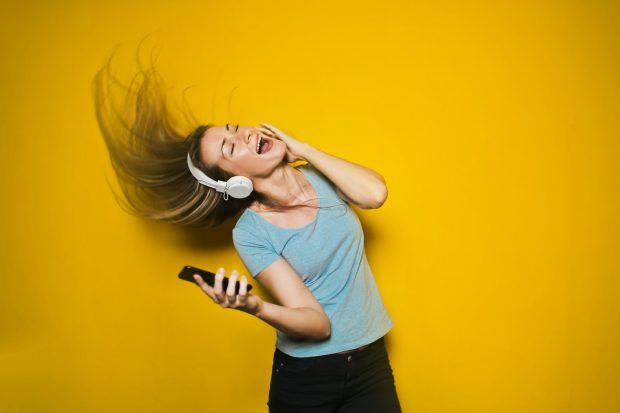
Photo by Lovefreund
“When I was a kid, my parents told me not to read a book in low lighting and strain my eyes. Yet protecting my hearing was never top of that list. In fact, the only time hearing becomes an issue is if it is picked up at school or during a medical examination. In our world today there’s a silent epidemic of progressive noise-induced hearing loss taking place, without parents and others realizing it.”
Brian confirmed there are serious implications for us in the long run.
“I think there’s this big misconception out there in the general public about their hearing health. For example, science shows that if you experience even mild hearing loss, you are at twice the risk of developing dementia or cognitive decline compared to normal hearing individuals.
“That’s a big deal. Yes, many individuals may not be concerned about their hearing health. However, I’m pretty sure most people are concerned about their brain health. And as we’re living longer as a society, noise-induced hearing loss earlier in life will have very long term consequences on quality of life as people age.”
The Apple Study
Clearly, digital devices play a key role in modern-day health challenges. Both positively and negatively. Apple recently teamed up with researchers at the University of Michigan to study sound exposure and its impact on hearing health. Called the Apple Hearing Study, this groundbreaking study was commissioned to understand how hearing can be impacted over time by exposure to sound at certain levels.
The research team measured headphones and environmental sound exposures over time among participants and determined how these exposures impact hearing and stress levels.
Apple and scientists are hoping this information will help guide public health policy and prevention programs designed to protect and promote hearing health in the US and globally.
What the study showed
The Apple Hearing study showed that 25 percent of participants experience a daily average environmental sound exposure (which can include traffic, machinery, public transport, and so on) that is higher than the WHO recommended limit.
Also, nearly 50 percent of participants now work, or have previously worked, in a loud workplace. As noise exposure has shown an impact on hearing, it’s important to be aware of surroundings. Checking noise levels with the Noise app on the Apple Watch can be an effective way to be more aware of sound exposure.
Average weekly headphone exposure for one in 10 participants is higher than the WHO recommended limit. While catchy tunes can be tempting, listeners should consider listening to music and other media at the lowest enjoyable volume.
When it came to their own devices, Apple found that 30% of AirPod users exceeded the noise though the recommended noise exposure dosage, which is a really high number.
Noise exposure to music
They also found that about 10% of AirPod wearers exceeded the recommended noise exposure to music.
Says Brian. “Ironically, I think we’re kind of a victim of our own technological success. Many consumer audio earbuds now have low distortion. As such, wearers can really crank up the volume and not experience poor sound quality. In the past, when earbud wearers turned up the volume, it sounded distorted, and they turned the volume down to avoid it. Now because of low distortion earbuds, wearers listen to, much higher volume levels, which can be dangerous for their long term hearing health.”
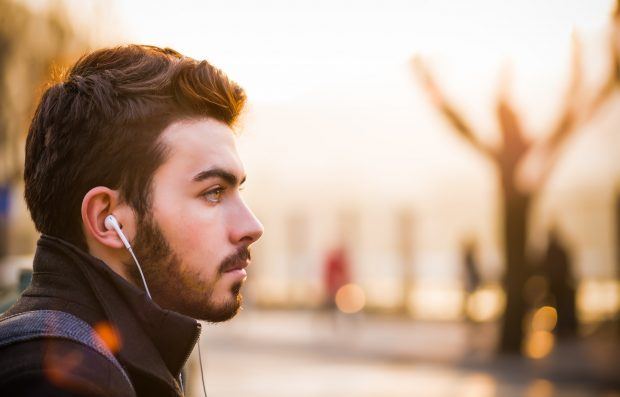
Photo by Alex Blăjan on Unsplash
Jodi agrees. She says the challenge is kids as young as five are listening to devices using headphones or earbuds and the long-term implications are just not known. However, based on the data scientists are collecting, there’s evidence of increasing hearing loss in the long run.
How do you know you are losing your hearing?
Usually, as you age you know you have to check your hearing, right?
Jodi explains. “Aging is the second most prevalent cause of hearing loss according to the National Institutes of Deafness and Communication Disorders here in the USA. Age is the strongest predictor of hearing loss among adults. From the age of 60, you can expect an age related decline.
The greatest amount of hearing loss seen is in the population between ages 60 and 69. This amounts to some 15% of American adults. That’s approximately 37 million Americans. “
As you get age-related hearing loss, you have to turn up the volume more and more over time.
When you are young, you won’t pay so much attention to this, but older people equate this with hearing loss and will most likely get their hearing checked or at least be aware this could happen to them.
Brian explains,. “It’s common for people to come in for a hearing test and think they have nothing more than wax built-up. Unfortunately, in most cases it’s not wax build-up, but the start of a permanent hearing loss.”
And most adults don’t realize it soon enough.
Here are 9 key signals your hearing is waning
- Difficulty understanding everyday conversation
- A feeling of being able to hear but not understand
- Having to turn up the TV or radio
- Asking others to repeat often
- You no longer hear the birdsong or hear it rarely
- Avoidance of social situations that were once enjoyable
- A sense of exhaustion after a day of listening to other people
- Increased difficulty communicating in noisy situations like restaurants, lively family gatherings, in the car, or in group meetings
- Tinnitus or ringing and/or buzzing sounds in the ears
If any of these pertain to you, get your hearing tested, no matter your age or stage of life.
Use of technology to check for hearing loss
“Sadly, we see the serious ramifications of untreated hearing loss . People don’t even realize that they’re pulling away from social activities, because they aren’t able to hear and communicate as easy it was before.”
Brian explains you can do basic tests on your hearing using apps on your phone.
Here are some Apple apps to consider:
- Monitor and protect hearing health: With the Noise app, Apple Watch users can enable notifications that alert when environmental noise levels might affect their hearing health. The Health app on iPhone keeps track of a user’s history of exposure to sound levels and informs whether headphones or environmental levels have exceeded those recommended by WHO standards.
- Use Apple devices to hear more clearly: AirPods, AirPods Pro, and AirPods Max can help hearing in loud places with Live Listen, which enables iPhones to function as a directional microphone. Transparency mode on AirPods Pro or AirPods Max lets outside sound in, so users can hear what’s going on around them.
- Set up Headphone Accommodations to make them sound more crisp and clear: Through a series of listening tests, iPhone enables users to customize headphone audio to their preferences. With iOS, they can upload personal audiograms and then tailor headphone audio output to reflect unique audiogram data. Mono Audio settings are also available to support those who may have hearing loss in only one ear.
- Use the Made for iPhone hearing device protocol: Hearing aids and sound processor wearers can stream audio such as phone and FaceTime calls, music, Siri, and other content directly from iPhone to their hearing device. It is the most advanced and extensive smartphone-hearing device platform in the world, with nearly 200 hearing device models available from more than 40 manufacturers.
Your phone is the creator of the problem, but can also offer solutions. Brian explains how using a phone app to test your hearing health can offer early detection of hearing loss.
“Get into the habit of downloading an app on your phone and regularly evaluate your hearing ability.”
Visit a licensed hearing care specialist
Jodi says while these digital app tests are helpful to provide a basic measurement, they are not always sensitive enough to pick up very mild, high-frequency hearing loss or hearing during noise difficulties. You should get your hearing tested by a licensed hearing care professional, such as an Audiologist if you continue using digital devices or suspect a hearing problem.
“ A complete hearing evaluation is what is required for a more accurate diagnosis.”
She adds, “There are a lot of apps and websites that will allow you to test the basics of your hearing like the Hearing Test area on the Widex or Signia websites. There are also other hearing health websites that evaluate your hearing in noise like the one found on hear-it.org.
Get tested!
Is all hearing damage irreversible?
Jodi said: “I would say that all hearing loss can be treated. If you consider that hearing aids and cochlear implants as a form of treatment. However, it’s important to know that age-related hearing loss cannot be reversed. It can only be best treated by a licensed hearing care professional with well-fitted hearing aids over time.”
Brian adds. “ It depends on the etiology or the cause of the hearing loss. The first step is to see an audiologist for a hearing assessment. We want to pinpoint the reason for the condition by completing a basic battery of tests to identify a possible medical cause that might require intervention from an ear, nose and throat (ENT) physician.
“For example, a common condition in children is an ear infection that affects the middle ear. This is a treatable condition that can be identified through standard tests conducted by audiologists.
Whether or not the hearing is permanently damaged or not depends on each individual’s situation.
How long did they let that medical issue go before they sought treatment?
Obviously the earlier the damage is caught the better,” says Jodi.
The Apple Hearing Study also highlighted how few people test their hearing.
“According to the study, nearly 50 percent of participants haven’t had their hearing tested by a professional in at least 10 years. And 25 percent of participants experience ringing in their ears a few times a week or more, which could be a sign of hearing damage. Everyone should have their hearing health checked periodically by a professional,” he says.
 Keeping healthy is important
Keeping healthy is important
There are a couple of studies have shown that people who follow a low fat, low cholesterol, or the Mediterranean diet are generally healthier and have a higher probability of not having as severe hearing loss as they age.
There are specific diseases that impact hearing loss more dramatically. Type 2 diabetes for example can lead to nerve damage that affects many parts of the body, including your hands, feet, eyes, and kidneys. Diabetes can also cause nerve damage in your ears. Over time, high blood sugar levels can damage small blood vessels and nerves in the inner ear. Low blood sugar over time can damage how nerve signals travel from the inner ear to your brain. Both types of nerve damage can lead to hearing loss.
Hearing loss is twice as common in people with diabetes as it is in people of the same age without.
Even people with pre-diabetes (blood sugar levels higher than normal, but not high enough yet to have type 2 diabetes) have a 30% higher rate of hearing loss than people with normal blood sugar levels.
In conclusion
Both Jodi and Brian agree that one of the most important things you can do is to protect yourself from hearing loss. Limit your noise exposure and monitor your hearing.
“Just like you have regular dental and eye check ups, you should check on your hearing. I recommend reducing the amount of time you’re in noise and limit the amount of time you’re wearing portable headphones/earbuds. Check your hearing health annually.” Says Jodi.
Brian concurs. “As I said before, we really don’t understand yet the full impact of digital devices in our lives, because the sound quality of Airpods and other types of earphones is so good people can really crank up the volume and they don’t realize how much damage they’re causing.”
About the specialists
Brian Taylor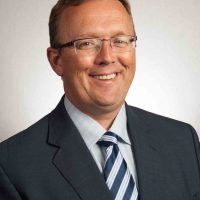 is a Doctor of Audiology and Senior Director of Audiology for Signia. He is also the editor of Audiology Practices, a quarterly journal of the Academy of Doctors of Audiology. He is also the editor-at-large for Hearing Health and Technology Matters and adjunct instructor at the University of Wisconsin. Dr. Taylor has authored several peer-reviewed articles and textbooks and is a highly sought-out lecturer. Brian has nearly 30 years of experience as both a clinician, business manager, and university instructor. His most recent textbook, Relationship-Centered Consultation Skills for Audiologists, was published in July 2021.
is a Doctor of Audiology and Senior Director of Audiology for Signia. He is also the editor of Audiology Practices, a quarterly journal of the Academy of Doctors of Audiology. He is also the editor-at-large for Hearing Health and Technology Matters and adjunct instructor at the University of Wisconsin. Dr. Taylor has authored several peer-reviewed articles and textbooks and is a highly sought-out lecturer. Brian has nearly 30 years of experience as both a clinician, business manager, and university instructor. His most recent textbook, Relationship-Centered Consultation Skills for Audiologists, was published in July 2021.
Jodi Sasaki-Miraglia , AuD completed a double bachelor’s degree in Audiology & Speech-Language Pathology at the University of Northern Colorado. Jodi also holds a Master’s degree in Audiology and a Doctorate degree in Audiology from Salus University. She has dedicated the last 18 years of her career to working for top global hearing device manufacturers as a Manager of Education & Training, Manager of Audiology Technical support, Sales Support, and Practice Management.
, AuD completed a double bachelor’s degree in Audiology & Speech-Language Pathology at the University of Northern Colorado. Jodi also holds a Master’s degree in Audiology and a Doctorate degree in Audiology from Salus University. She has dedicated the last 18 years of her career to working for top global hearing device manufacturers as a Manager of Education & Training, Manager of Audiology Technical support, Sales Support, and Practice Management.
Jodi is proud to be an Audiologist for almost two decades. Her past positions include working as a Clinical Audiologist at the Mayo Clinic in Scottsdale and in Audiology Private Practice. Jodi is a frequent guest lecturer at the local Au.D. programs. She provides public outreach for Hearing Healthcare and presents at local and national meetings. Jodi was born and raised in Kona, Hawaii, is an avid SPAM eater, and enjoys living in Southern California with her family and Golden Retriever Rex.
References
The Apple Study:https://www.apple.com/za/newsroom/2021/03/apple-hearing-study-shares-new-insights-on-hearing-health/ Users across the US are participating in the Apple Hearing Study through the Research app.
World Health Organization: https://www.who.int/news-room/fact-sheets/detail/deafness-and-hearing-loss
Center for Disease Control – CDC USA: https://www.cdc.gov/diabetes/basics/prediabetes.html


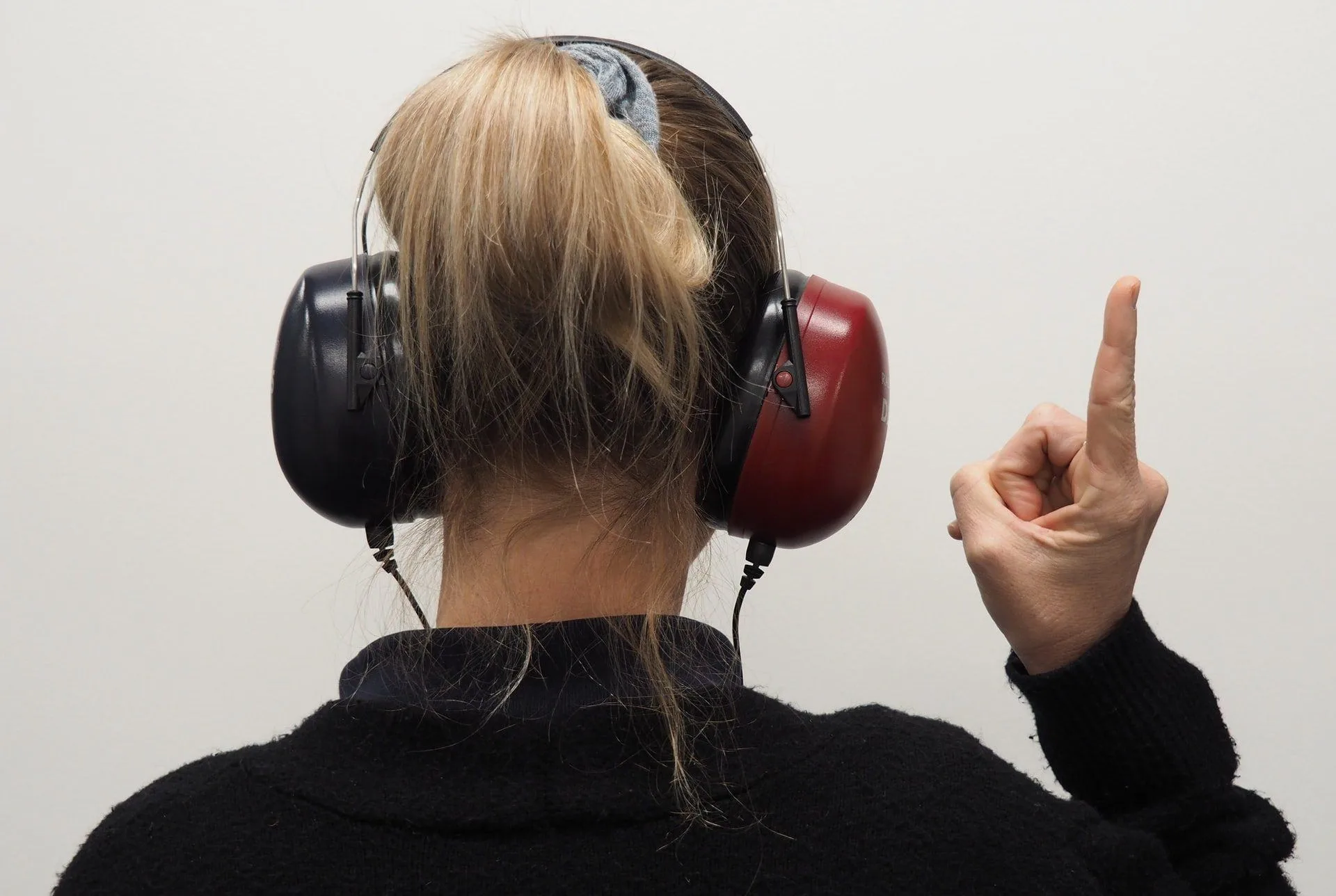
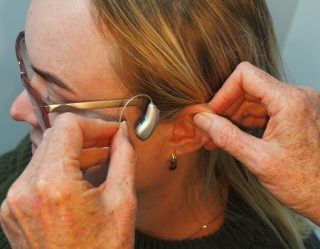 Keeping healthy is important
Keeping healthy is important

![women [longevity live]](https://longevitylive.com/wp-content/uploads/2020/01/photo-of-women-walking-down-the-street-1116984-100x100.jpg)










